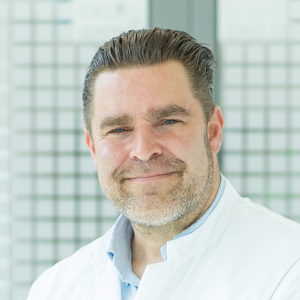Specialists in Stomach Cancer
10 Specialists found
Information About the Field of Stomach Cancer
What is Stomach Cancer?
Stomach cancer is a malignant neoplasm of the cells of the stomach, which can spread to surrounding tissue and metastasize to other organs via the vascular system. If discovered early, stomach cancer is easily treatable.
Frequency and Causes of Stomach Cancer
Stomach cancer is the second most common cancer of the digestive tract after colon cancer.
In Western Europe, 13 out of 100,000 women and 7 out of 100,000 men are diagnosed with stomach cancer annually. The disease mainly occurs after the age of 50, but in 10% of women, it occurs earlier. In China, Japan, Finland, and some South American countries, stomach cancer is much more common, which is due to a diet rich in nitrite (cured and smoked foods contain a lot of nitrites). Nitrates can be converted to nitrosamines, which have a carcinogenic effect. Tobacco smoke also contains nitrosamines.
Besides diet, genetic factors also play a role. For example, first-degree relatives of a patient with stomach cancer have a 2-3 times higher risk of developing the same.
The most important risk factor for the development of stomach cancer is chronic (over a long time) gastritis of type A and type B.
Type B gastritis is caused by bacteria, usually Helicobacter pylori, and increases the risk of stomach cancer fivefold. Helicobacter pylori can be reliably removed by eradication therapy.
An increased risk of stomach cancer is also observed in type gastritis, an autoimmune disease that is directed against the parietal cells in the stomach.
Furthermore, gastric cancer can also occur as a late consequence of a gastrectomy (gastrectomy), or develop from a gastric polyp or massive gastric folds (Morbus Ménétrier).
Symptoms of stomach cancer
Patients with stomach cancer often come to the doctor with vague, minor complaints. The following symptoms may indicate stomach cancer:
- Rapid weight loss
- Decreased efficiency
- Distaste for meat
- Nausea
- Feelings of pressure in the upper abdomen
- Swallowing difficulties
- Bleeding
Usually, gastroscopy is used to take biopsies, and other possible diagnoses, e.g., stomach ulcer, reflux disease, and irritable stomach syndrome, are excluded.
Stomach cancer treatment and surgery
If stomach cancer has been diagnosed, the progress of the disease is decisive for the therapy. To evaluate cancer, the liver, lungs, bones, and lymph nodes of the stomach can be examined for metastases. The brain can also be affected.
Stomach Cancer Surgery
In most cases, stomach cancer is surgically removed, but this is only advisable if the tumor can be removed entirely. Typically, the entire stomach and surrounding lymph nodes are removed. Subsequently, the esophagus stump is connected to a part of the small intestine to ensure that the passage of the digestive tract is not interrupted. This surgical procedure is called Roux-Y reconstruction.
In some early stages, stomach cancer can also be removed with an endoscope, which means a much gentler procedure for the patient.
In advanced stages, the patients undergo chemotherapy with the intention of healing. The active substances cisplatin and 5-Fluorouracil are administered for a period before and after the surgery.
Life prolonging therapy
If healing is no longer expected, life-prolonging therapy is indicated, which preserves the quality of life as far as possible.
A combination of calcium folinate, 5-fluorouracil, and cisplatin are mostly used with chemotherapeutic agents (PLF scheme). A combination of epirubicin, cisplatin, and fluorouracil (ECF-scheme) given as a continuous infusion is very complex but even more successful.
If a non-operable tumor restricts the digestive tract and food cannot pass through the stomach anymore, a metal stent can be placed.
Chances of Recovery and Life Expectancy with Gastric Cancer
The likelihood of recovery from stomach cancer depends on the time it is discovered. Early stomach cancer, which means a still very small cancer that has not spread metastases, has a 5-year survival rate of up to 90%.
The more advanced the cancer is, the worse the prognosis is (0-45%). The prognosis and risk of recurrent stomach cancer also depend on the surgeon's experience extent of the lymph nodes that have been removed.
Which Doctors and Clinics are Specialized in Stomach Cancer in Germany, Austria, and Switzerland?
Anyone who has stomach cancer wants the best medical care. Therefore, the patient is wondering where to find the best clinic for stomach cancer therapy.
As this question cannot be answered objectively, and a reputable doctor would never claim to be the best one, we can only rely on the experience of a doctor. The more patients with stomach cancer a doctor has operated on, the more experienced he becomes in his specialized field.
Stomach cancer specialists are clinics and gastroenterologists who have specialized in the diagnosis and treatment of stomach cancer. Visceral surgeons are the right physicians to contact for stomach cancer surgery. In oncology centers, the various departments work together on an interdisciplinary basis and use tumor conferences to determine the best procedure for each patient.
Sources:










